We test and review fitness products based on an independent, multi-point methodology. If you use our links to purchase something, we may earn a commission. Read our disclosures.
Many people swear by the best pre-workout supplements for improved energy, focus, and physical performance during exercise but aren’t aware of their potential side effects. Itchy skin, tingling, and even burning are common side effects of taking pre-workout, and these symptoms can be concerning.
So why does pre-workout make you itch? A common culprit is beta-alanine, a natural compound produced by the body that is frequently added to pre-workout products for its ability to reduce fatigue. In this article we’ll discuss why beta-alanine causes itching and whether it poses any concerns for health or exercise performance so that you can make an informed decision about your pre-workout supplementation.
Medical disclaimer: This article is intended for educational and informational purposes only. It is not intended as a substitute for medical advice. For health advice, contact a licensed healthcare provider.
Why Does Pre-Workout Make You Itch?
The itchy, tingling sensation you may feel after taking a pre-workout supplement is likely due to an ingredient called beta-alanine. Beta-alanine is commonly found in pre-workout supplements and its ability to cause itching is well-documented.
RELATED: Best Pre-Workout Ingredients
Beta-alanine attaches to the receptors of sensory neurons in the body, which communicate with the brain to stimulate the skin and cause an itching sensation called “paresthesia.” According to an October 2012 review1 published in the Journal of Neuroscience, these neurons aren’t sensitive to histamine, meaning that common anti-itch creams and medications that work by blocking histamine won’t have an effect on itching caused by beta-alanine. Paresthesia tends to occur most often in the face, neck, and back of the hands.
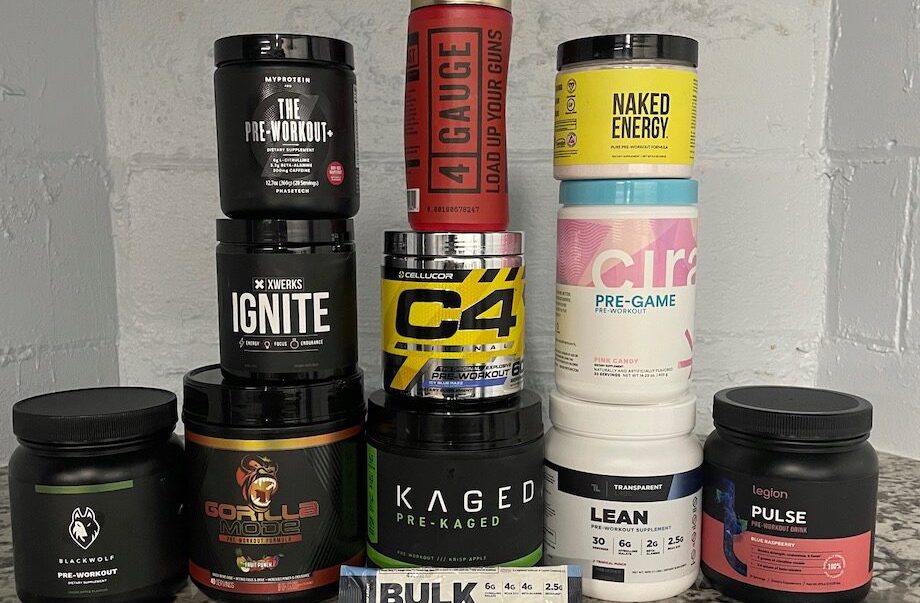
These itchy, tingly sensations tend to be more intense with higher doses, with some people being more sensitive to beta-alanine than others. The International Society of Sports Nutrition2 suggests that paresthesia is more likely when beta-alanine is taken in doses over 800 milligrams (0.8 grams), especially in products without a sustained-release formulation.
Beta-alanine isn’t the only explanation for that pre-workout itch—niacin can also be to blame. Niacin is a B vitamin known to cause harmless red flushing and itching of the skin when consumed in high amounts. For this article, however, we’ll be focusing on beta-alanine.
What Is Beta-Alanine?
What is beta-alanine? Beta-alanine is a non-essential amino acid that is produced by the body and also obtained from food. It’s most well-known for its role as a component of carnosine. Carnosine is a protein made up of the amino acids beta-alanine and histidine and is a common ingredient in pre-workout supplements due to its ability to reduce muscle fatigue during exercise.
Why not just take a carnosine supplement? Carnosine is broken down and metabolized by the body before ever reaching the skeletal muscles, so taking a supplement won’t provide much benefit. Taking beta-alanine is much more effective, with the International Society of Sports Nutrition stating that beta-alanine can significantly improve muscle carnosine levels2.
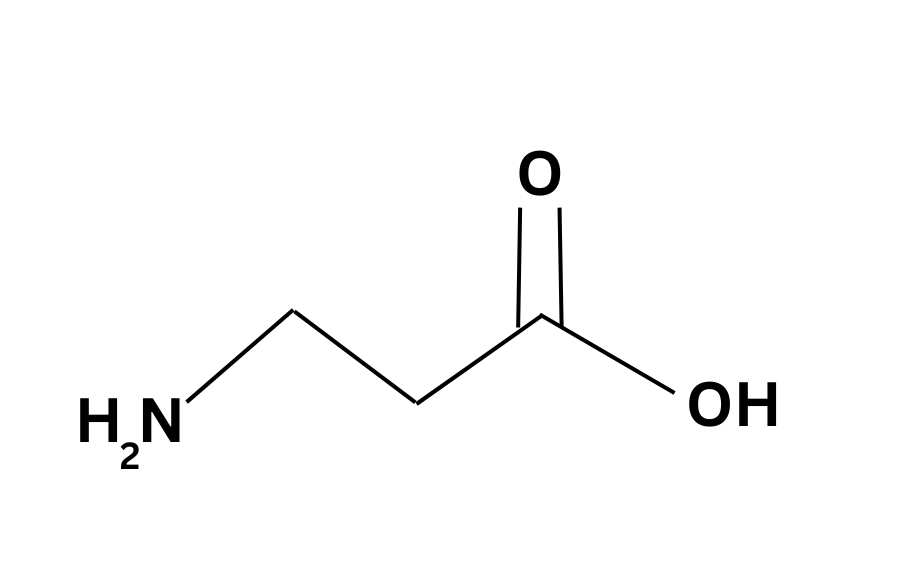
During exercise, lactic acid builds up in muscle tissue and lowers the pH of the muscle, making it more acidic. Lactic acid is largely responsible for the muscular “burn” experienced during intense exercise. Carnosine works as a helpful buffer to prevent muscle cells from becoming too acidic, effectively reducing muscular fatigue.
Dosing
Similar to creatine monohydrate supplements, beta-alanine should be taken in “loading” doses to maximize muscle carnosine levels. Most research supports a loading dose of 4 to 6 grams of beta-alanine per day for at least two weeks, divided into two doses per day. This dose may be even more effective when taken for at least four weeks2. It may be helpful to divide higher doses (closer to 6 grams) into up to four doses per day to maximize its absorption and efficacy.
Similarly, an April 2017 review paper3 published in the British Journal of Sports Medicine found that improvements in muscle carnosine levels were seen with as little as 1.6 grams of beta-alanine per day for two weeks, with performance benefits seen with daily doses of 3.2 to 6.4 grams of beta-alanine taken for four to 12 weeks.
Of note, the majority of research on optimal beta-alanine dosing has been done on men. The conclusion of a February 2022 review paper4 published in the International Journal of Sport Nutrition and Exercise Metabolism stated that while beta-alanine is effective for increasing how long women are able to exercise, the optimal timing and dosage of beta-alanine supplementation in women is unclear.
RELATED: Best Pre-Workout for Women
Benefits of Beta-Alanine Supplementation
The biggest benefit of beta-alanine is that it helps load skeletal muscles with carnosine, which can reduce muscle fatigue and perceived exertion and allow you to exercise for a longer period of time or increase the intensity of your workout. This can lead to a higher volume of exercise overall, widely considered the most important factor for improving athletic performance.
When beta-alanine is taken as part of a pre-workout that contains other ingredients, it may be effective as long as the pre-workout is taken for at least four weeks and the product contains an adequate loading dose of 4 to 6 grams per day.2
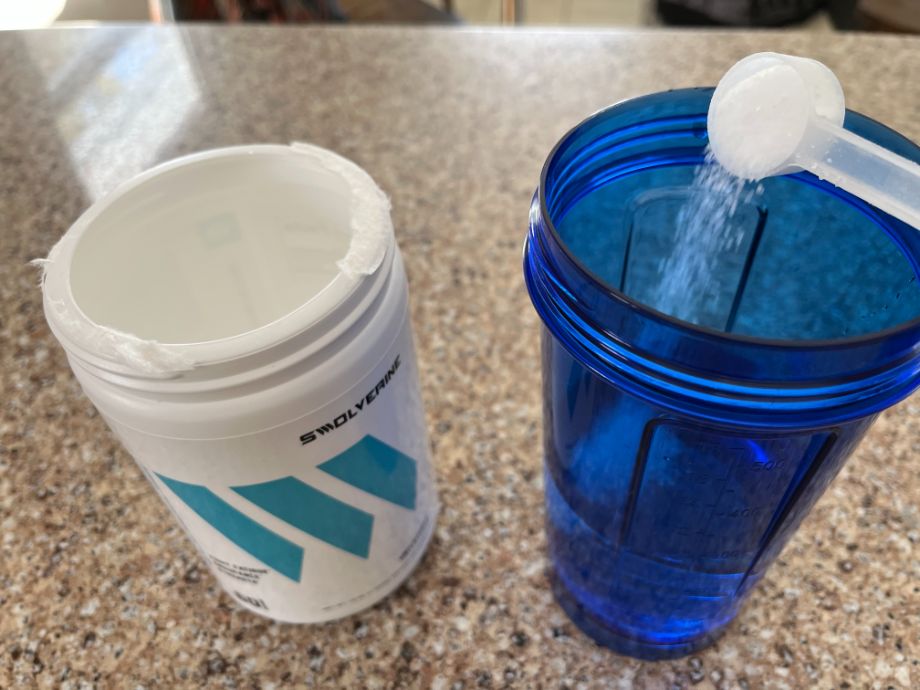
Beta-alanine appears to be the most effective for reducing muscular fatigue during anaerobic, high-intensity exercises like weight lifting that only last for a minute or so, although it can also provide some benefit for endurance activities lasting up to 25 minutes.2
RELATED: Aerobic vs Anaerobic Metabolism
It may be particularly helpful for vegetarians and vegans, as a September 2017 review paper5 suggested that these groups have lower levels of carnosine in the muscle compared to meat-eaters.
Potential Drawbacks of Beta-Alanine Supplementation
As we’ve discussed so far, itchiness and tingling are potential (but not harmful) side effects of beta-alanine.
Since any supplement is an added expense, it’s important to determine whether beta-alanine will be effective for your specific fitness goals before investing your hard-earned money in it.
Beta-alanine may be more effective in people new to exercising or who exercise recreationally compared to more well-trained individuals who work out consistently and follow a structured exercise plan.3 It isn’t clear whether beta-alanine helps improve strength gains.
Another disappointing consideration is that beta-alanine is unlikely to help improve body composition even when combined with exercise, according to a May 2022 meta-analysis6 published in the Journal of the International Society of Sports Medicine.
Dietary supplements aren’t highly regulated in the United States, so it’s important to choose a product that’s third-party tested to ensure that the product is free of contaminants and actually contains the pre-workout ingredients listed on the label.
Safety
Beta-alanine is typically considered safe in the short-term when taken at recommended doses, but research is lacking on its safety when consumed for a year or more. That said, experts believe that the risk of negative health effects from long-term use is likely low since beta-alanine is naturally produced by the body.2
How Long Does the Tingling Last?
When looking at pre-workout products that don’t have a sustained-release formulation for beta-alanine, tingling symptoms typically disappear within 60 to 90 minutes after taking the supplement.2 Because the symptoms resolve themselves, this sensation is considered harmless.
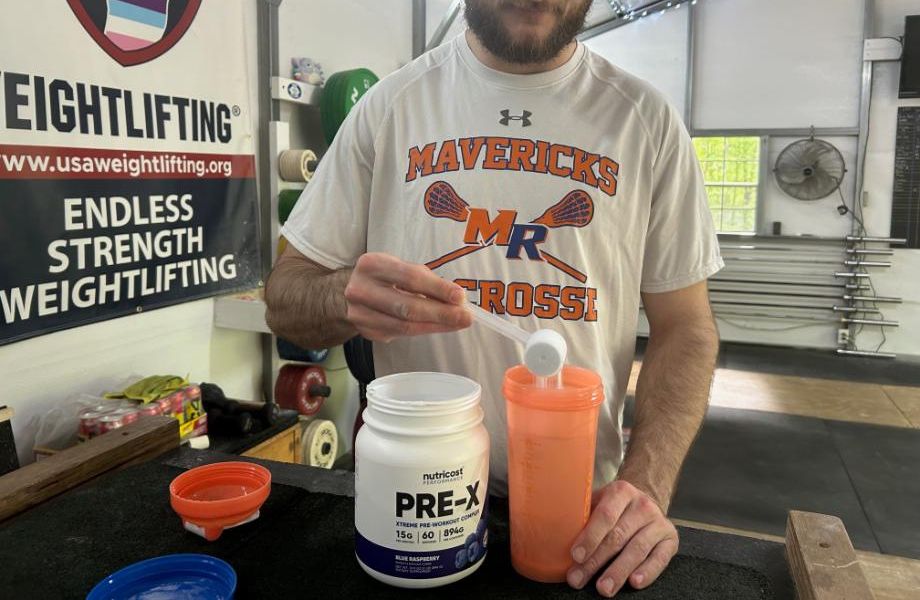
Sensitive to caffeine, as well? Check out our guide to the Best Stim-Free Pre-Workout.
Can You Prevent Beta-Alanine Itch?
One you have “the itch” there isn’t much you can do other than wait for the feeling to subside. Fortunately, there are a few strategies for preventing beta-alanine itch without giving up pre-workout supplements. You can prevent or reduce the itch by:
- Choosing a sustained-release formation. This will help prevent beta-alanine from being absorbed too quickly.
- Splitting your daily dose of beta-alanine into smaller doses throughout the day.
- Choosing a pre-workout with less (or no) beta-alanine. See our roundup of the best pre-workouts without beta-alanine.
- Taking beta-alanine with a meal during the loading phase.
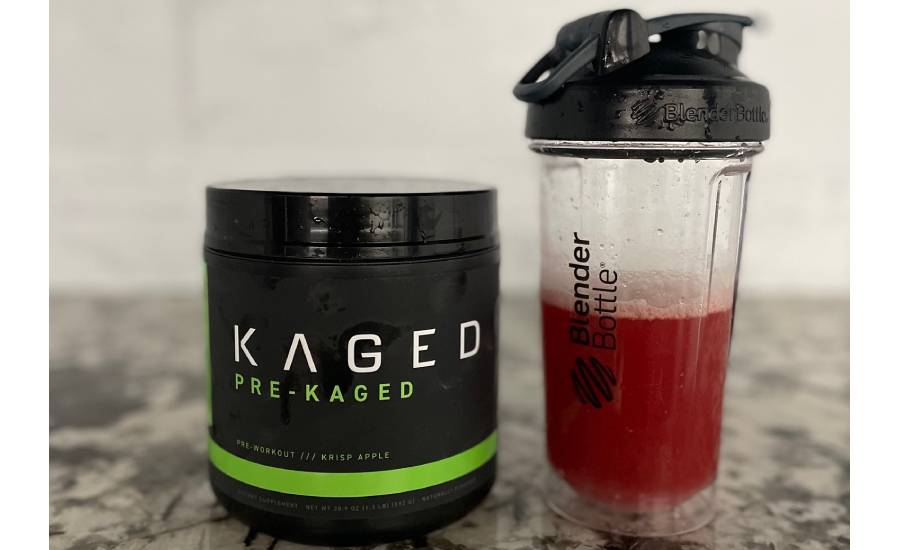
CarnoSyn® is an example of a sustained release beta-alanine formation that is added to many pre-workouts, such as the Kaged Muscle Pre-Kaged pre-workout.
Why Does Pre-Workout Make You Itch? Final Thoughts
Beta-alanine is an amino acid commonly added to pre-workout supplements that can cause itching and tingling when consumed in high amounts. These symptoms aren’t harmful, but are understandably unpleasant.
Fortunately, you can reduce or prevent beta-alanine-related itching by choosing a sustained-release pre-workout, choosing a pre-workout with less beta-alanine per serving, or spreading your beta-alanine intake throughout the day in smaller doses rather than taking it all at once.
People have varying sensitivities to beta-alanine, so try implementing one or more of these strategies and see if they make a difference for you.
Why Does Pre-Workout Make You Itch? FAQs
Is it bad if pre-workout makes you itchy?
Itchiness caused by the beta-alanine present in pre-workout supplements isn’t inherently harmful, although it can be uncomfortable. Feeling itchy after taking pre-workout may be a sign that you’re consuming too much beta-alanine at one time, which isn’t as effective as smaller doses for loading the muscle with carnosine and may not provide with you with the fatigue-reducing benefits you’re looking for.
How do you stop pre-workout itching?
Typically, symptoms of itchiness or tingling from taking a pre-workout are due to its beta-alanine content. Symptoms tend to be worse with higher doses, so taking a smaller amount of pre-workout at a time can help. Choosing pre-workout formulas with sustained-release of beta-alanine can also help, as it will slow down how quickly beta-alanine is absorbed in the intestines.
How long does pre-workout itch last?
Pre-workout itching because of beta-alanine typically lasts between 60 to 90 minutes after first taking it, although this will vary from person to person.
Is beta-alanine bad for you?
Beta-alanine is likely safe when taken at recommended doses for loading the muscle. Research on long-term safety when taking it for over a year is lacking, but beta-alanine is expected to be safe for most people since it’s produced naturally by the body. Other ingredients in pre-workout may not be as safe, however, since dietary supplements are not regulated by the FDA for purity or accuracy of ingredients. As much as possible, try to choose products that have been third-party tested.
These statements have not been evaluated by the Food and Drug Administration. This product is not intended to diagnose, treat, cure, or prevent any diseases.
References
- Liu Q, Sikand P, Ma C, Tang Z, Han L, Li Z, Sun S, LaMotte RH, Dong X. Mechanisms of itch evoked by β-alanine. J Neurosci. 2012 Oct 17;32(42):14532-7. doi: 10.1523/JNEUROSCI.3509-12.2012. PMID: 23077038; PMCID: PMC3491570.
- Trexler ET, Smith-Ryan AE, Stout JR, Hoffman JR, Wilborn CD, Sale C, Kreider RB, Jäger R, Earnest CP, Bannock L, Campbell B, Kalman D, Ziegenfuss TN, Antonio J. International society of sports nutrition position stand: Beta-Alanine. J Int Soc Sports Nutr. 2015 Jul 15;12:30. doi: 10.1186/s12970-015-0090-y. PMID: 26175657; PMCID: PMC4501114.
- Saunders B, Elliott-Sale K, Artioli GG, Swinton PA, Dolan E, Roschel H, Sale C, Gualano B. β-alanine supplementation to improve exercise capacity and performance: a systematic review and meta-analysis. Br J Sports Med. 2017 Apr;51(8):658-669. doi: 10.1136/bjsports-2016-096396. Epub 2016 Oct 18. PMID: 27797728.
- Murphy MJ, Rushing BR, Sumner SJ, Hackney AC. Dietary Supplements for Athletic Performance in Women: Beta-Alanine, Caffeine, and Nitrate. Int J Sport Nutr Exerc Metab. 2022;32(4):311-323. Published 2022 Feb 23. doi:10.1123/ijsnem.2021-0176
- Rogerson D. Vegan diets: practical advice for athletes and exercisers. J Int Soc Sports Nutr. 2017 Sep 13;14:36. doi: 10.1186/s12970-017-0192-9. PMID: 28924423; PMCID: PMC5598028.
- Ashtary-Larky D, Bagheri R, Ghanavati M, Asbaghi O, Wong A, Stout JR, Suzuki K. Effects of beta-alanine supplementation on body composition: a GRADE-assessed systematic review and meta-analysis. J Int Soc Sports Nutr. 2022 May 31;19(1):196-218. doi: 10.1080/15502783.2022.2079384. PMID: 35813845; PMCID: PMC9261744.
Further reading

Since most protein bars on the market are made with whey protein, it can be a challenge to find a good one if you avoid animal-based foods. Our experts tested dozens of options to bring you this list of the best vegan protein bars. Read more

New to lifting weights? Our certified personal trainer explains beginner barbell workouts you can do. Read more

Can a company known for its rowers make a good exercise bike? Our Concept2 BikeErg review will let you know our thoughts. Read more

Are you looking to sauna in style without landing yourself in hot water? Our sauna etiquette guide gives you everything you need to know! Read more

